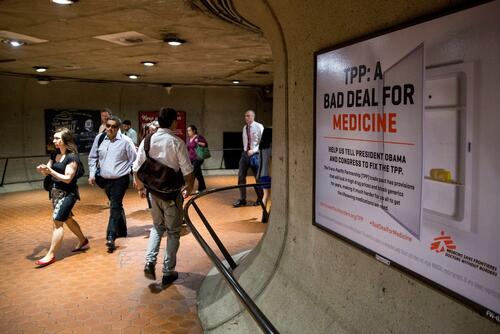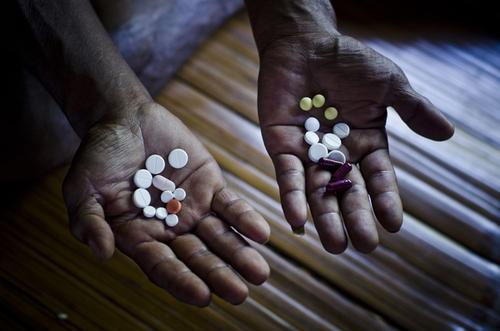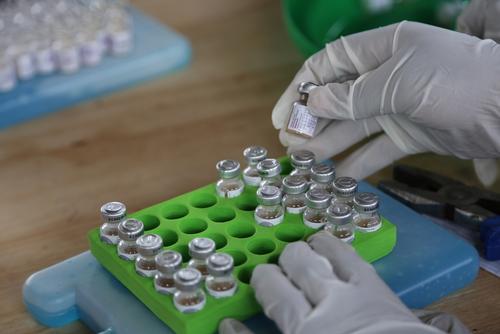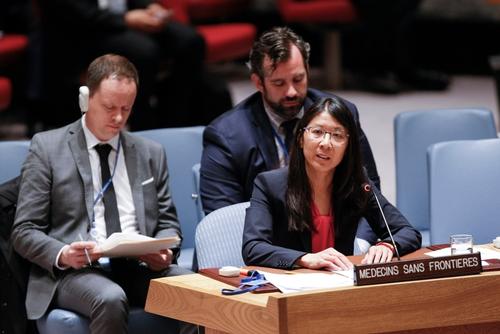Geneva — As representatives from the United States and 11 other Pacific-Rim countries gather in New Zealand Thursday to sign the Trans-Pacific Partnership (TPP) trade agreement, the fight to protect access to medicines in TPP countries is intensifying at the national level, with legislative processes starting that will determine if the deal is finally ratified and implemented. Médecins Sans Frontières (MSF) is calling on the more than 800 million people living in TPP countries to urge their governments to reject the deal unless harmful provisions that lock in high drug prices are removed.
“The fight to stop this irresponsible trade deal from going into effect is far from over,” said Judit Rius Sanjuan, MSF’s US Access Campaign manager and legal policy advisor. “The TPP deal being signed today is the worst trade deal ever for access to medicines and will make life-saving treatments unaffordable for those who need them most. That’s why it’s critical that people demand their governments uphold their obligations to protect public health and fight back against unjust profiteering that would be enabled by the TPP.”
The current TPP countries are United States, Australia, Brunei Darussalam, Canada, Chile, Japan, Malaysia, Mexico, New Zealand, Peru, Singapore and Vietnam, but more countries could sign on, and the agreement is being billed as a blueprint for future trade deals.
The TPP deal was agreed in October after more than five years of negotiations that were conducted in secret, without the opportunity for public review. The agreement is now public and people affected by the TPP can finally have their say and tell their legislators and governments not to ratify the deal unless damaging provisions that will harm access to medicines are removed.
If implemented, the TPP will extend pharmaceutical company monopolies and prevent people from accessing life-saving medicines by blocking or delaying the availability of price-lowering generic drugs. Additionally, the TPP would dismantle public health safeguards and force developing countries to change their laws to incorporate abusive intellectual property protections for pharmaceutical companies, making it harder for people – and organisations like MSF that serve them – to buy the affordable medicines they need.
The high price of medicines is a global problem affecting countries at every income level, but people in developing countries where MSF has operations are particularly hard hit by high prices, as most people pay for medicines out of pocket. High prices and strict intellectual property rules will also do nothing to solve the global crisis of biomedical innovation, including a lack of new medicines to address antibiotic resistance. High drug prices divert government resources away from financing needs-driven research and development in favor of padding the bottom line and the pockets of multinational drug companies.






